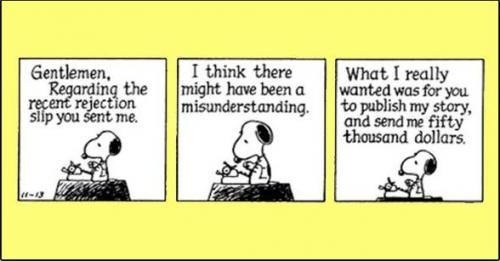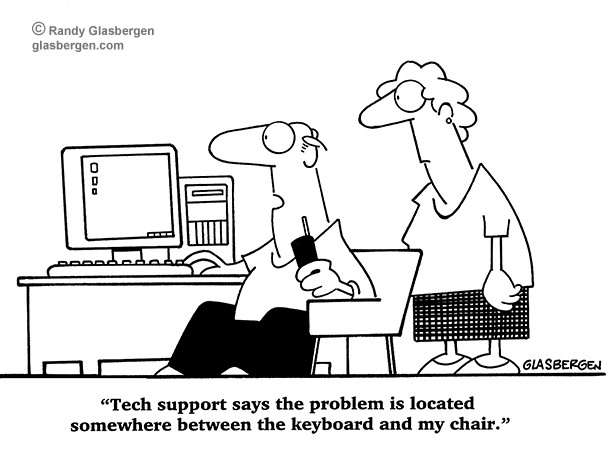I've been writing for a hobby since I was in my teens, which was a lonnnnnng time ago. Initially, I wrote short stories.
Of course, I also tried to sell my stories. But, all I did was collect a heap of rejection slips.
While I was serving in in the U.S. Air Force in Japan, I became interested in oil painting. That more or less took me away from writing for about ten years. After I got out of the Air Force, I continued with the oil painting and actually sold quite a few of them.
But, gradually I lost interest in oil painting. My true love was writing. Plus, I was writing every day as I worked as a computer programmer, and then as a systems analyst. It was technical writing, as it was part of my job to explain how business systems currently worked at my place of employment, and how a new system would do things differently, thereby solving problems that had plagued the company for years. At home, I wrote a non-fiction book about how difficult it was to convince some people that computers were not magic and it was the systems designer and programmer who made the computer do things, computers didn't just do them automatically. (This was in the early days of computing, when the average person had no idea how a computer worked and the idea of a "home computer" wasn't even imagined yet.) The book was evidently too self-serving, and I couldn't get an agent interested.
Then I started writing novels. And somehow I got the idea of trying to write screenplays, since I was a BIG movie fan and had been all my life.
I managed to get an agent interested, and he arranged for a producer to option one of my screenplays. But, none of my scripts was ever actually bought and produced. I entered screenwriting contests and did fairly well. That went on for years, and I had a half dozen screenplays in circulation. (They're described on a page on my web site HERE.)
Meanwhile, I again returned to writing novels. I wrote a novel about the early days of World War II, which at various times I called "That December," "Dangerous December" and "Clipper." A well-known agent became interested in the novel and tried about 50 different publishers, but it was no sale. (One of the publishers liked the idea of an adventure on a Pan-Am flying boat and mentioned it to one of his writers, Ken Follett. Follett then wrote a novel titled "Night Over Water." It had nothing to do with my novel, other than that the story took place on a Pan-Am flying boat.)
After the terrorist hijacking attacks on the World Trade Center and the Pentagon on September 11, 2001, I became interested in the anthrax letter attacks that occurred shortly afterward. I created a web site and began discussing (and arguing) the case with people on the Internet. I was fascinated by arguments between "experts," where it was clear that one "expert" was arguing his personal beliefs, while another expert was looking at the facts and evidence. I enjoyed figuring out which was which.
In 2005, I wrote a non-fiction book titled "Analyzing the Anthrax Attacks," which was my analysis of the information known at that time. Since I had no "credentials" for writing such a book, I couldn't find an agent or a publisher. So, I published it myself (a major adventure and learning experience for me).
The experience in self-publishing "Analyzing the Anthrax Attacks" convinced
me that I should self-publish a Kindle edition of "Clipper," which I
did in September 2010. Since there was no publicity for the book, no one knew about it. However, I did sell a few copies from time to time, particularly when ABC television aired a series titled "Pan Am" in 2011 and 2012.
In 2012, I self-published a second non-fiction book titled "A Crime Unlike Any Other: What the Facts Say About Bruce Edwards Ivins and the Anthrax Attacks of 2001." Once again, because I had no "credentials" for writing such a book (other than examining and discussing all the information about the case for over 10 years), I hadn't been able to get any agents interested. Even though it also had no publicity, it has sold enough copies to off-set my costs in self-publishing the book and make it profitable (albeit only slightly so).
In October 2013, I started work on a new novel - a science-fiction novel which incorporated and expanded upon an idea from a screenplay I never finished, which was called "Gizmo." I finished the third draft of the novel in January 2014.
Once again, I had problems getting an agent. This time, however, the reason was different. It appears no agent wants to work with a 77-year-old wanna-be novelist. (Some agents even say on their web sites that they do not handle writers over 65 or so.) Also, the book business has changed. The big thing in novels these days is "series books," i.e., books where a character or group of characters have adventure after adventure in a series of novels. Examples: Lee Child's 19 novels featuring "Jack Reacher," Janet Evanovich's 21 novels featuring "Stephanie Plum," James Patterson's "Private" series, and the "Nikki Heat" novels by Richard Castle (which are real books by real writers posing as a fictional author from the TV series "Castle.")
But, I was undeterred. Since I truly enjoy writing, I decided to work on a second sci-fi book involving the same characters from the book I had finished in January 2014. I finished the first draft of that second book in August 2014. The plan is to have three books in the series finished before I once again try to find an agent. And, if I can't find an agent for the three books, I'll self-publish.
I think I understand why I haven't been more successful with my fiction. I have good plots, but my main characters do not excite the reader. Readers are interested in following what happens to some interesting character, even if the story is kind of far-fetched or dopey. It's certainly better to have a good story AND interesting characters, but it's almost impossible to get a novel published if the characters are not interesting.
Knowing what the problem is doesn't automatically make the solution easy. I'm working on it. Hopefully, agents and readers will find the characters in my three sci-fi novels to be interesting and exciting.
Time will tell.
Ed
Every day I seem to run into new issues where I need to reexamine what I know about the world. It's a very complex world, and getting more and more complex every day. So, I'm going to comment on it here.
Sunday, October 26, 2014
Thursday, October 9, 2014
Converting to a new computer
Last week, I bought a new Hewitt-Packard laptop computer. It works fine, and I'm totally pleased with it. But I was stunned to see how many differences there are in the way things are done on new computers versus how I've been doing them on my old computer for the past 10 years or so.
It's like I've entered a different world. Nothing works the way I've been accustomed to doing things. I'm going to have to learn new skills. And, while learning, I have to try to avoid disasters.
The main problem seems to be the differences between Windows XP and Windows 8.1. But there are also major differences in using a touchpad versus using a mouse. It's as if everything has changed.
1. Most times, it seems that just holding the cursor arrow over something is equivalent to clicking on it. That means if I see an icon and don't know what it is for, and if I hold the cursor over the icon to see what information pops up to explain the purpose of the icon, I may also activate some function.
Ed
It's like I've entered a different world. Nothing works the way I've been accustomed to doing things. I'm going to have to learn new skills. And, while learning, I have to try to avoid disasters.
The main problem seems to be the differences between Windows XP and Windows 8.1. But there are also major differences in using a touchpad versus using a mouse. It's as if everything has changed.
1. Most times, it seems that just holding the cursor arrow over something is equivalent to clicking on it. That means if I see an icon and don't know what it is for, and if I hold the cursor over the icon to see what information pops up to explain the purpose of the icon, I may also activate some function.
ADDED NOTE: It appears that this could be a difference between Internet Explorer and Firefox. The problem seems to only occur with Internet Explorer. I've switched to Firefox where the problem doesn't seem to happen.2. I'm having a serious problem figuring out how to copy and paste things. It seems to be different with each application. On my old computer, clicking on the right button on the mouse would bring up a menu that included "copy" and "paste" and other functions. Clicking on the touchpad equivalent accomplishes nothing. And there doesn't seem to be any way to copy many things.
ADDED NOTE: I viewed some videos on how to use the touchpad, and from one of them I learned that copy and paste is a two handed operation. You have to press the lower left corner of the touchpad with the finger of your left hand while using a finger on your right hand to move the cursor over the area you want to copy. With a mouse, it's all done with one hand. Learning it was a two handed operation was a major discovery for me.3. There are no longer any manuals on paper to refer to. You have to find things on-line, like help videos which never seem to address my current problem. Somewhere there may be an explanation, but it's not like looking things up in an index and flipping to a page.
ADDED NOTE: This is still an issue. But I'm becoming accustomed to it.I didn't have any problem creating this blog - ON MY OLD COMPUTER. I shudder to think what would be involved if I tried it on my new computer.
ADDED NOTE: Apparently, it would be no problem at all. I found I can access this blog as easily on my new laptop as I can on my old computer.While looking for something else, I discovered Microsoft Paint. This is a MAJOR find for me. I had it on my old computer and didn't even know it. It means I can do most of my graphics work without the need to buy Corel Draw.
Ed
Subscribe to:
Posts (Atom)

